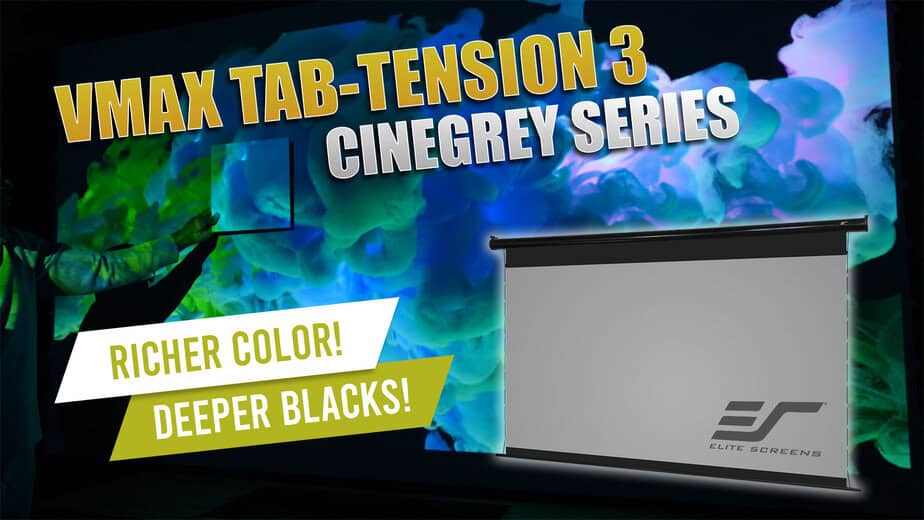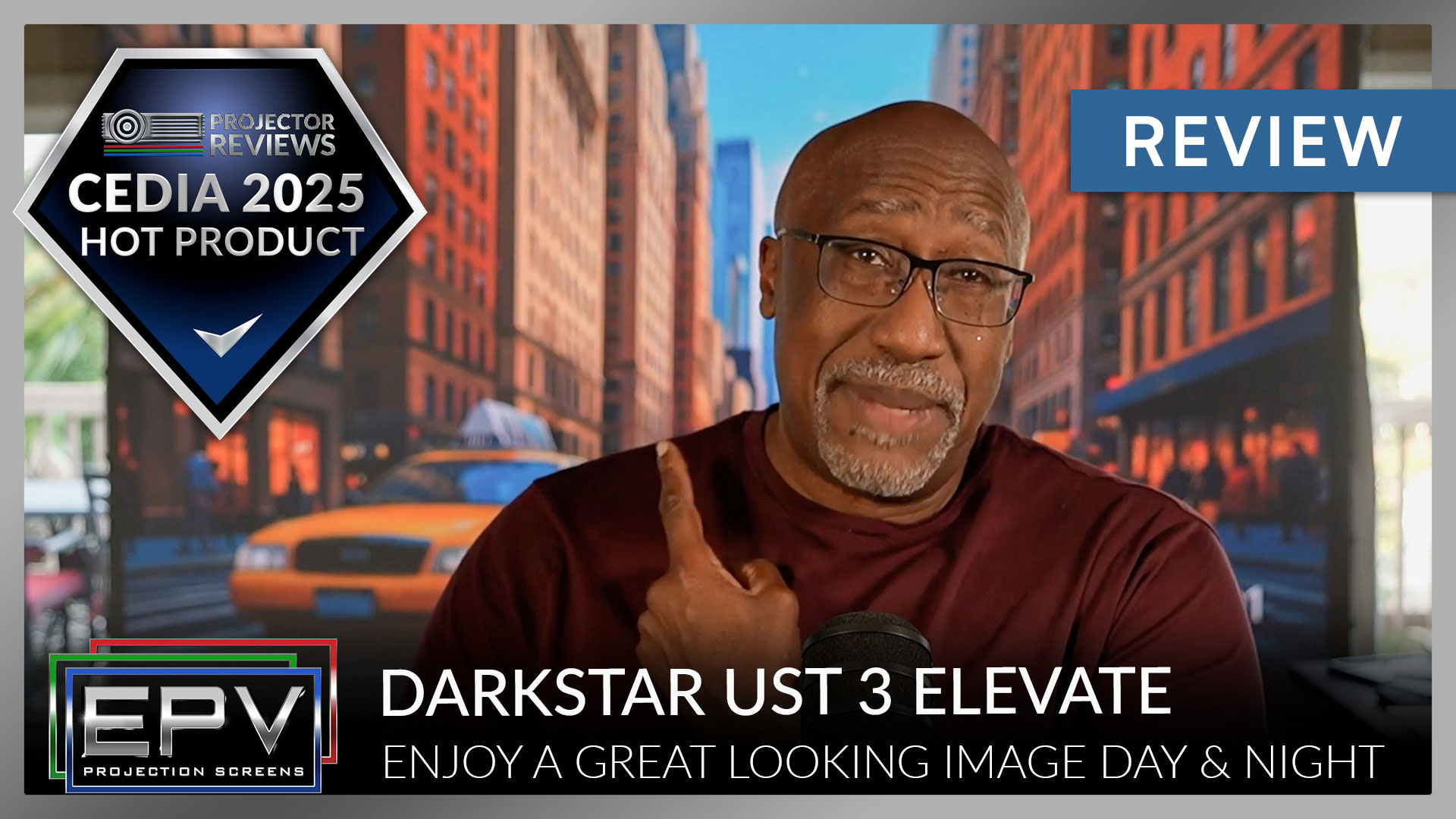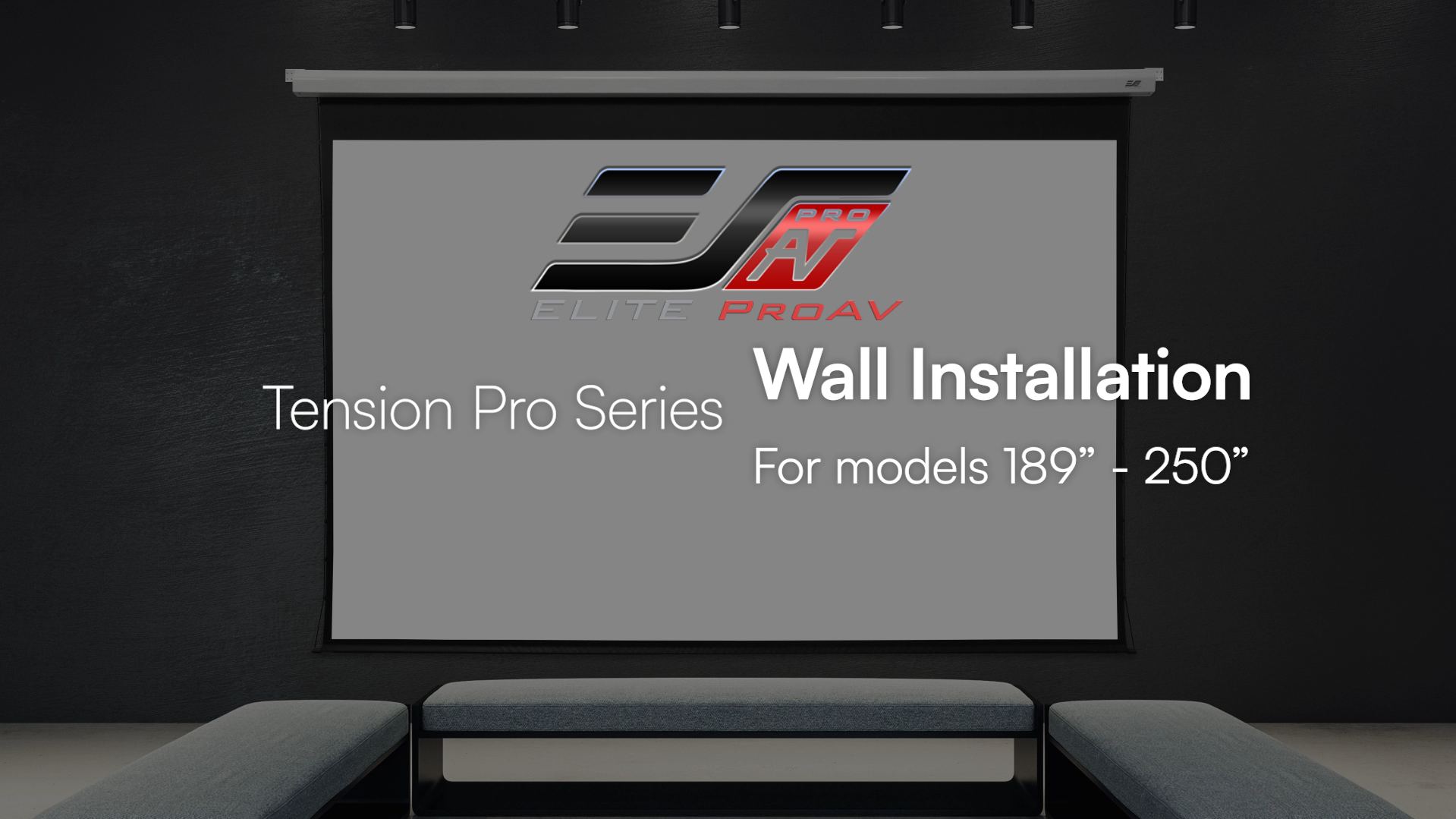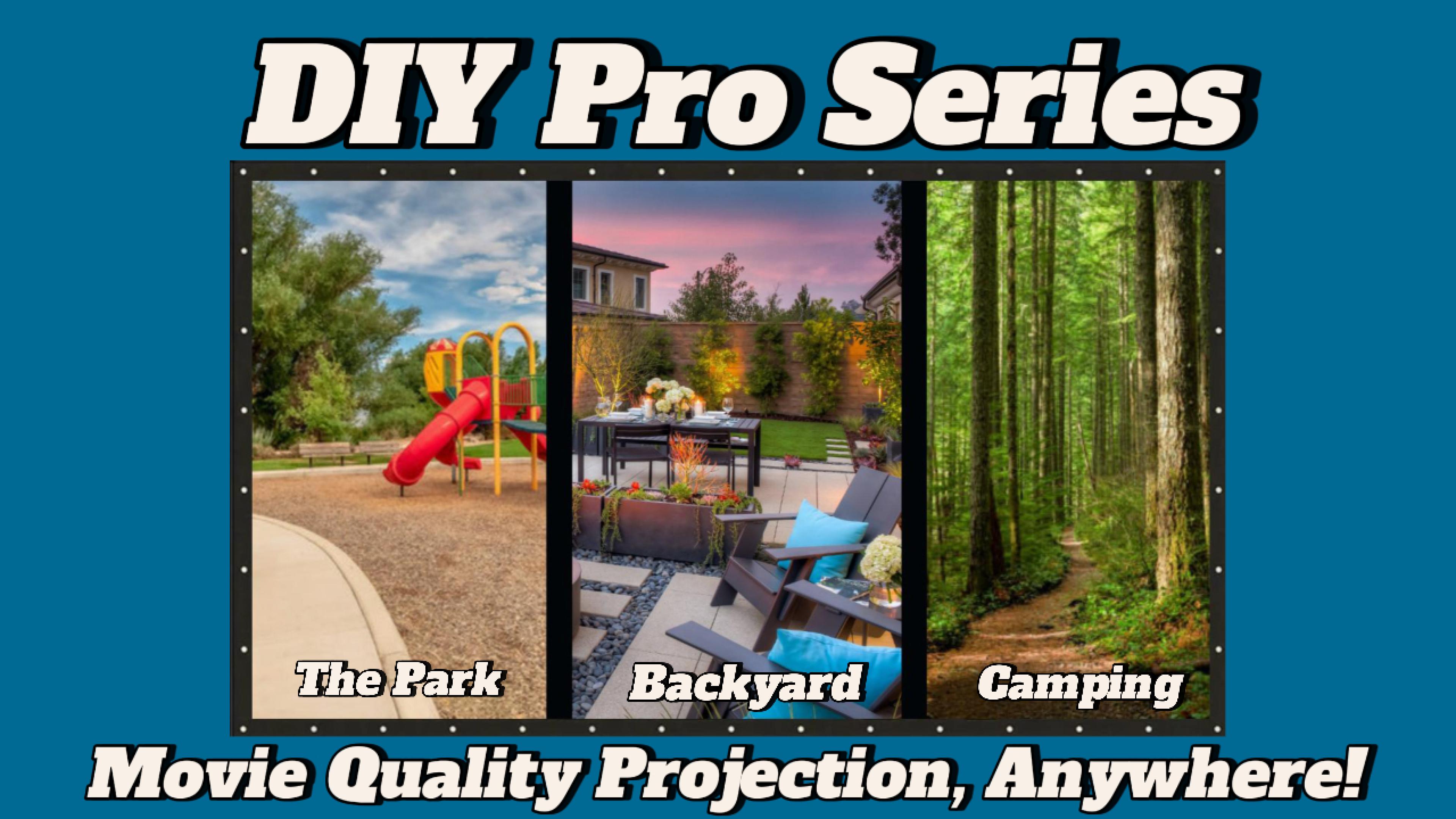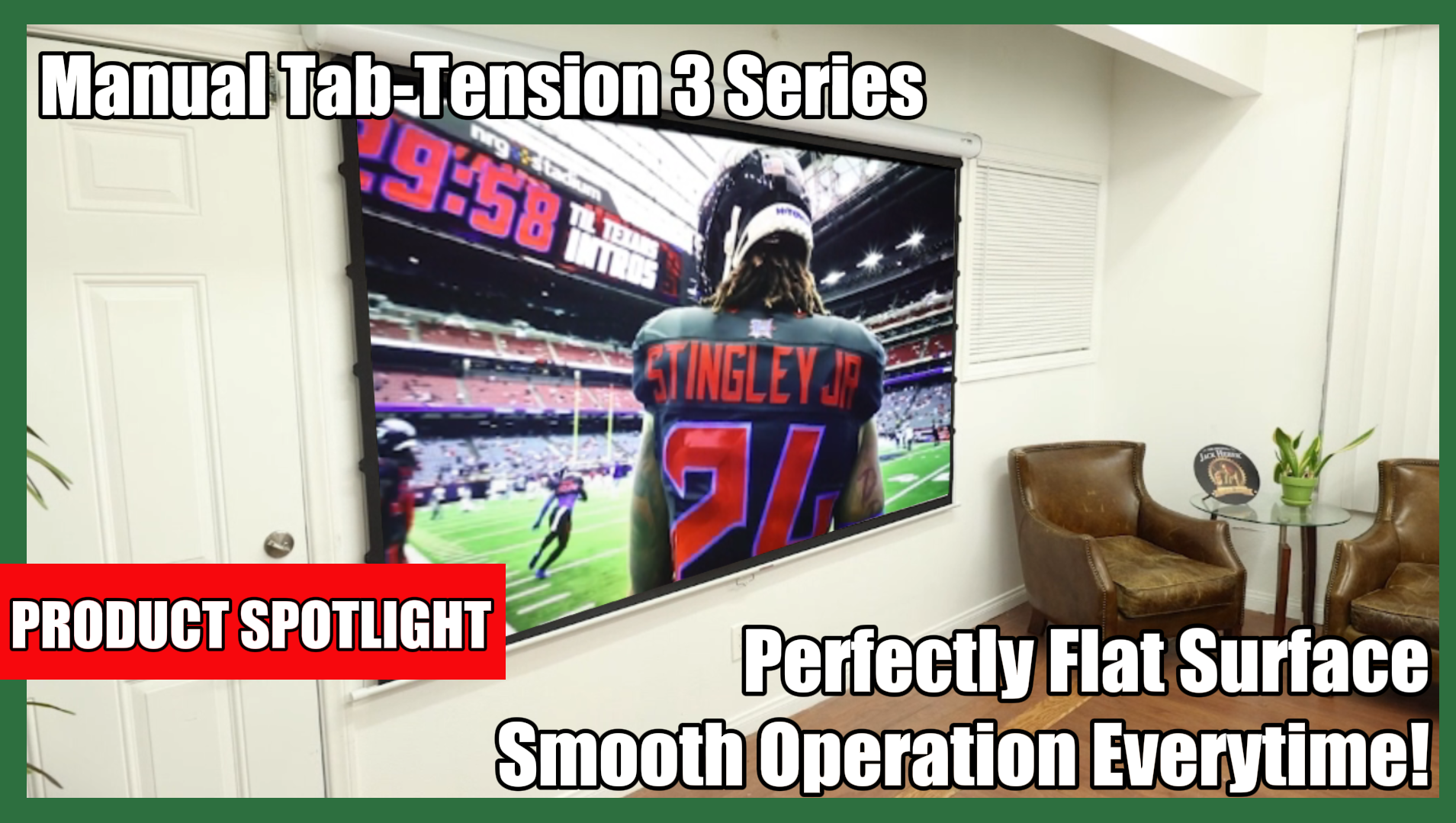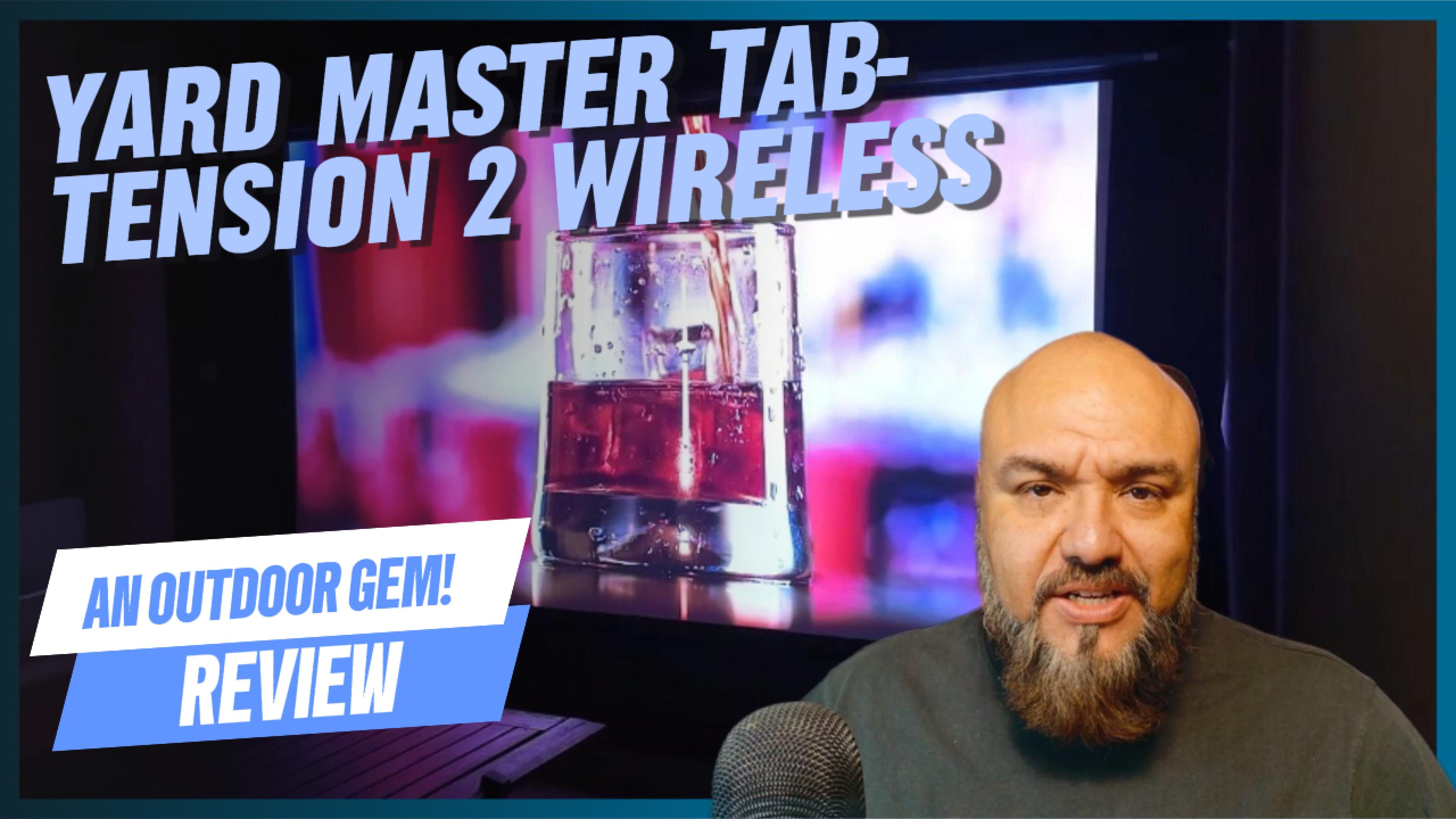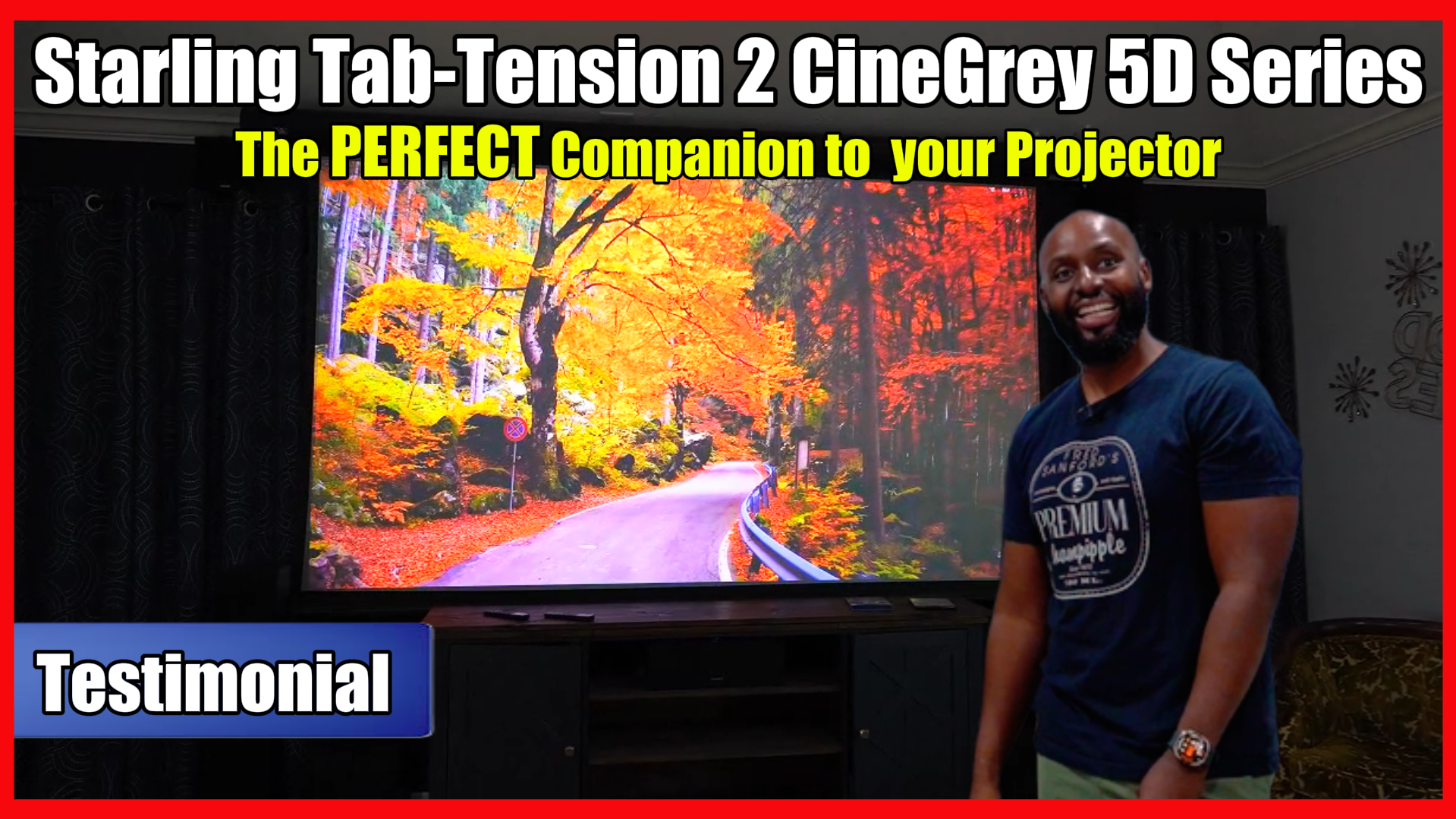This discussion answers crucial questions between our various tab-tensioned projection screens. In addition to pointing out the differences, it also walks the customer through the operation of the CineTension B Vertical Limit Switch. This feature allows the end user to change the distance that a screen comes out of its casing.
- Instructions for the CineTension B Vertical Limit Switch – https://elitescreens.com/images/download/material/Service/VLSA-CineTensionB.pdf
*The discussion below is based on actual chat transcripts with the omission of any personal/confidential material to protect the customer’s privacy. An example in this case is to change the contact’s identification name/number to “Customer” or a generic name.
Transcripts:
- [21:34] Rick: Hello, how may I help you.
- [21:35] Customer: I am looking at the CineTension B series screen and wanted to ask if the screen MUST be lowered all the way or if it is adjustable and can be set to a predefined height
- [21:35] Rick: Yes, the screen comes factory pre-set to it lowest drop point but we do have instructions on how you can shorten your screen’s drop or bring it back out to the factory setting.
- [21:35] Customer: my application is for home use, I am interested in a tension tab screen based on what I have read
- [21:35] Rick: I have a solution https://elitescreens.com/images/download/material/Service/VLSA-CineTensionB.pdf
- [21:36] Rick: You will be able to adjust to stop shorter and the screen will be set to stop in this position.
- [21:36] Customer: That’s perfect!
- [21:37] Customer: i wasn’t sure if it would be possible b/c I wasn’t sure if the tension system needed to be fully down to engage properly
- [21:37] Customer: 2nd question…
- [21:37] Customer: I was also looking at the Spectrum Tab-Tension screen… major difference being the screen material
- [21:38] Customer: I saw the spec sheets but can you tell me anything more about the “real world” differences
- [21:39] Rick: The spectrum Tab Tension is designed to provide assistance to prevent the material from curling on the sides. and the CineTension b is actual tension material and will provide the flattest surface.
- [21:40] Customer: So the CineTension is higher tension or the bottom is weighted more? or… I guess I am asking what’s the difference ( I assumed tensioned was tensioned… )
- [21:42] Rick: Yes, the CineTension B is more tensioned, the weight bar and unit is heavier. and due to this, the unit is compatible to short throw and ultra-short throw projectors. as the spectrum tension system is to assist and prevent the material from curling on the side and the material is not stretched.
- [21:43] Rick: Also, it’s more lighter.
- [21:44] Customer: Alright, the CineTension sounds like a far superior product then based on this info + viewing angles/reflection angles
- [21:46] Customer: I plan to use it for tv/movies/video games, i currently have 1080P but want to be able to upgrade to 4k, short throw is a non-issue i have about 13 feet between the projector and screen
- [21:46] Rick: Yes, this unit will be best suited and is also 4K and UHD ready.
- [21:46] Customer: Based on that, any other products you recommend I consider?
- [21:47] Customer: Also, any difference between the CineTension 2 and B (other than the extra material for the drop down?)
- [21:49] Rick: the CineTension 2 has a black backing that will prevent any light from bleeding through as the B series does not have black backing.
- [21:49] Rick: And the housing is black only and the B series is white case only.
- [21:50] Customer: alright, good to know, thank you very much for your time and help.
- [21:50] Rick: Thank you for choosing Elite Screens
